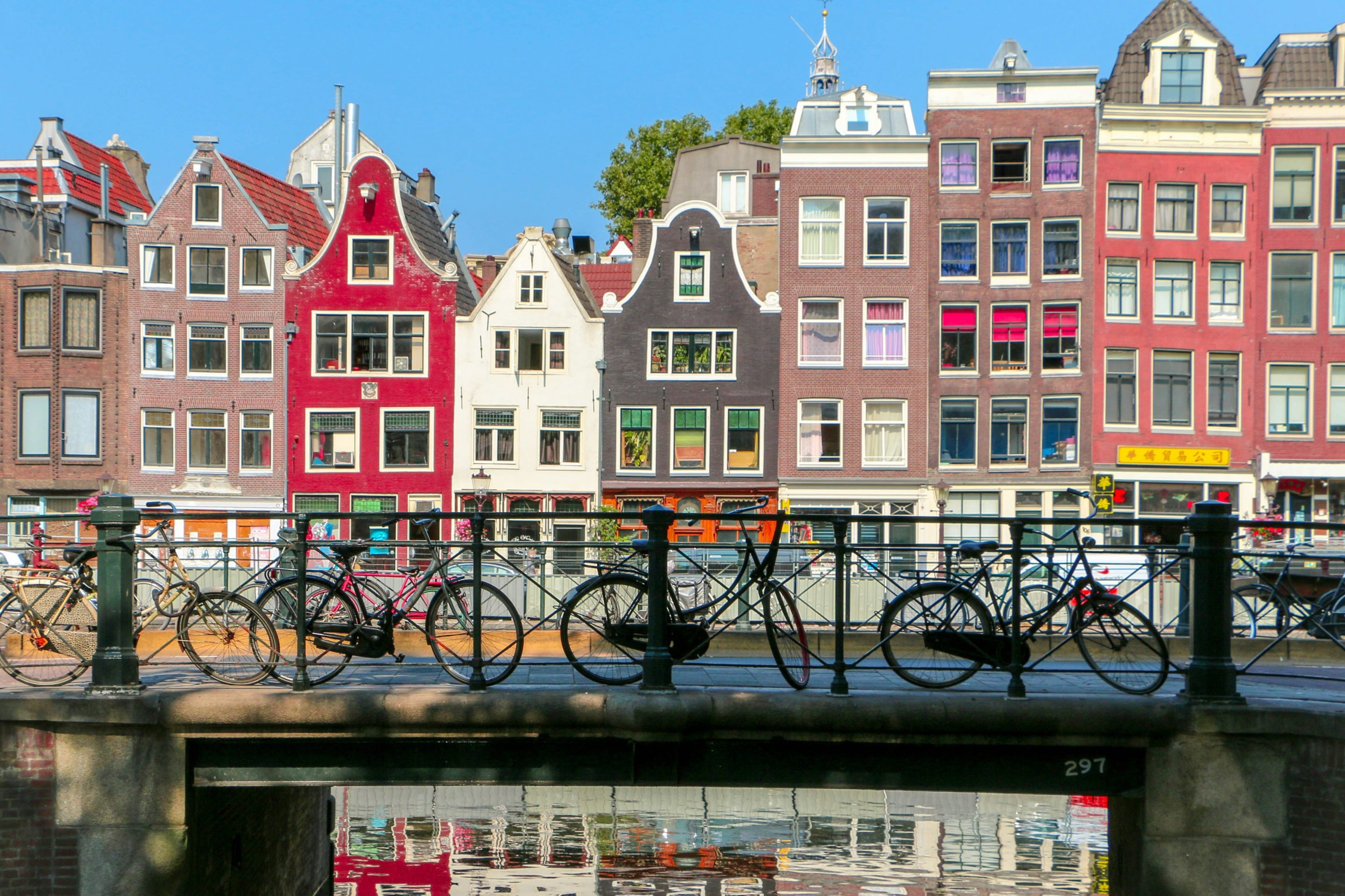The Dutch are known around the world as global leaders in sustainable transportation. But as excellent as they are at designing cities to optimize the mobility experience, what about all the other reasons residents might move through their communities — and what other questions should the Netherlands and America be asking about what public space is really for?
Those questions are at the heart of the new Dutch book, “Movement: How to Take Back Our Streets and Transform our Lives,” which is out in English for the first time. So on this episode of the Brake, we sit down with authors Thalia Verkade and Marco te Brömmelstroet to talk about how much of their country treats bikes as “cars on two wheels,” the good and bad ways that e-bikes are reshaping their landscapes, and how American communities can continue to learn from the Dutch example, while also joining them in the fight for even better streets.
The following excerpt has been edited for clarity and length.
Streetsblog: With authors, I always like to start with just the elevator pitch. In a few words, when people ask you, "What is this book 'Movement' about?" what do you say?
Thalia Verkade: The book is kind of a journey of discovery. So I [ventured] into the world of mobility, which I thought was very boring; I didn't even know the word realIy meant, [or] that it was a whole profession. And so that's actually also what the book is about; that there is a whole profession of people and engineers who have made the streets look the way they look right now. That is not a given; it's a historical choice.
I didn't realize that [before], because so much of this is has become part of our natural language. You know; of course you press the button when you cross the street! But it's really technical world, and public space isn't necessarily the place for engineering [logic]. So that, for me is what the book's about.
Streetsblog: So I have to admit, I'm a little bit nervous to interview the two of you, not because I didn't love this book — which I did — but because I think a lot about this book is going to be a little upsetting or provocative to U.S. readers in particular. We have this idea in the U.S. that the Netherlands is a mobility paradise; that it's a place where you can bike safely and children can play and the air is clean and the birds are singing. ... But in the book, you argue that the Netherlands is imperfect in part because you're "striving for a future with more and more mobility, more journeys to cover increasingly long distances, or the fastest participants still has the most rights."
What is the difference between "mobility" and "movement," which is the title of the book? And what's the problem with a transportation system that emphasizes mobility and speed, even if it looks like the Netherlands?
Marco te Brömmelstroet: So I started [the process of writing the book] at the other end of the spectrum from where Thalia started. For me, it was very hard to accept the notion that other people didn't see the fact that the streets and the public space that we use are actually the outcome of a heavily politicized battle. So if you start seeing that — which also is the disclaimer for the end of the book — you can't un-see it anymore. You see it everywhere.
So I had a very hard time understanding why journalists or politicians or citizens didn't see that, and also didn't claim this battleground as something important. And that had everything to do with the difference between mobility and movement. As soon as we see being outside in public space as 'mobility,' it suddenly becomes part of this technocratic regime with all kinds of rules and norms and guidelines.
For instance, the word "pedestrian"; suddenly, you are no longer just walking or strolling on the street. As a pedestrian, you have certain rights, and you have to follow certain rules. And this whole system seems to be a given. But it is a very recent innovation of how we see things on the street.
And because of [those] technocratic rules and guidelines, the political nature of it gets hidden — but it's hidden in plain sight. And thanks to Thalia's good questions, and her ability to keep digging deeper, the book helps the reader to find that out.
[And the book is] not only upsetting for people in the US; we also found it slightly upsetting for bicycle advocates in the Netherlands as well. Because, indeed, we are showing people a much better version of this system than in most other countries — please keep on learning from the Netherlands! But in the Netherlands, we are also maybe the most advanced country [at] hiding this political element [underneath], because it seems so well organized, [and like] we no longer have to really talk about the problems that still occur.






